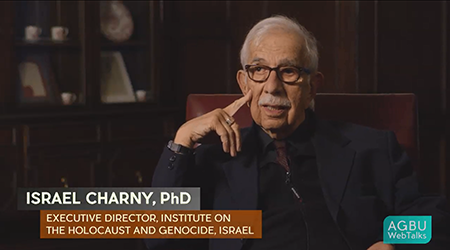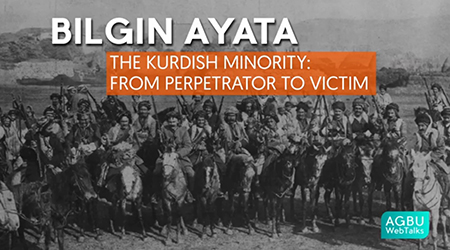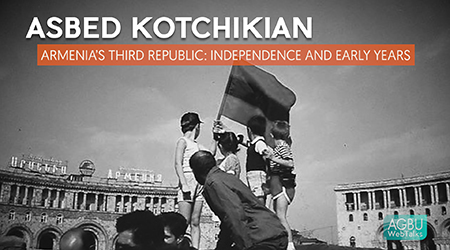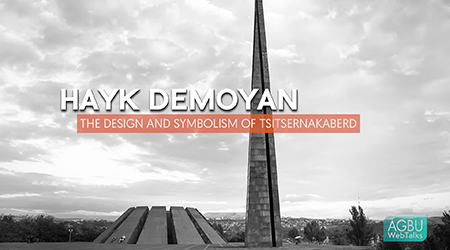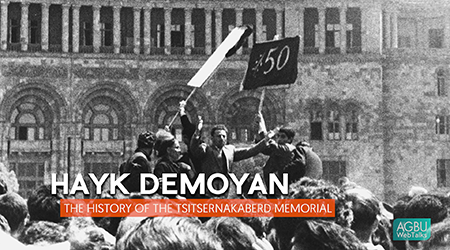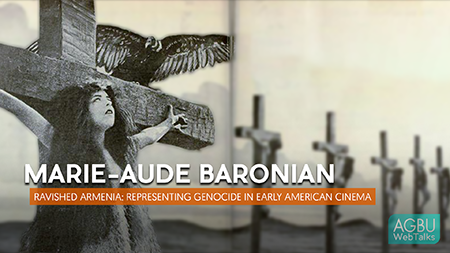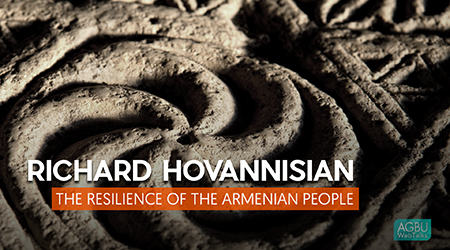WebTalks
The Importance of Genocide Recognition
Geoffrey Robertson
Geoffrey Robertson examines the role of the Armenian Genocide in the development of genocide studies
The Importance of Genocide Recognition
Human rights lawyer Geoffrey Robertson explains what constitutes genocide as a legal concept, how this legal definition applies to the case of the Armenians in 1915 and how the Armenian Genocide, the first genocide of the 20th century, was critical in the development of genocide studies and the drafting of the UN Genocide Convention of 1948 by Raphael Lemkin.
Produced by AGBU WebTalks in partnership with the Zoryan Institute.
Dr. Israel W. Charny tells the story of how he became a “devoted student of the deni ... [more]
Legal scholar Hannibal Travis discusses the significance of the Armenian Genocide in shapi ... [more]
Legal scholar Hannibal Travis examines the lack of accountability for genocide throughout ... [more]
Beginning with the Hamidian massacres and throughout the Armenian Genocide, Ottoman author ... [more]
Dr. Kotchikian looks back on the events that gave rise to the independence movement in Sov ... [more]
The Tsitsernakaberd memorial complex in Yerevan is Armenia’s official memorial dedic ... [more]
For over fifty years, the Tsitsernakaberd Memorial to the victims of the Armenian Genocide ... [more]

